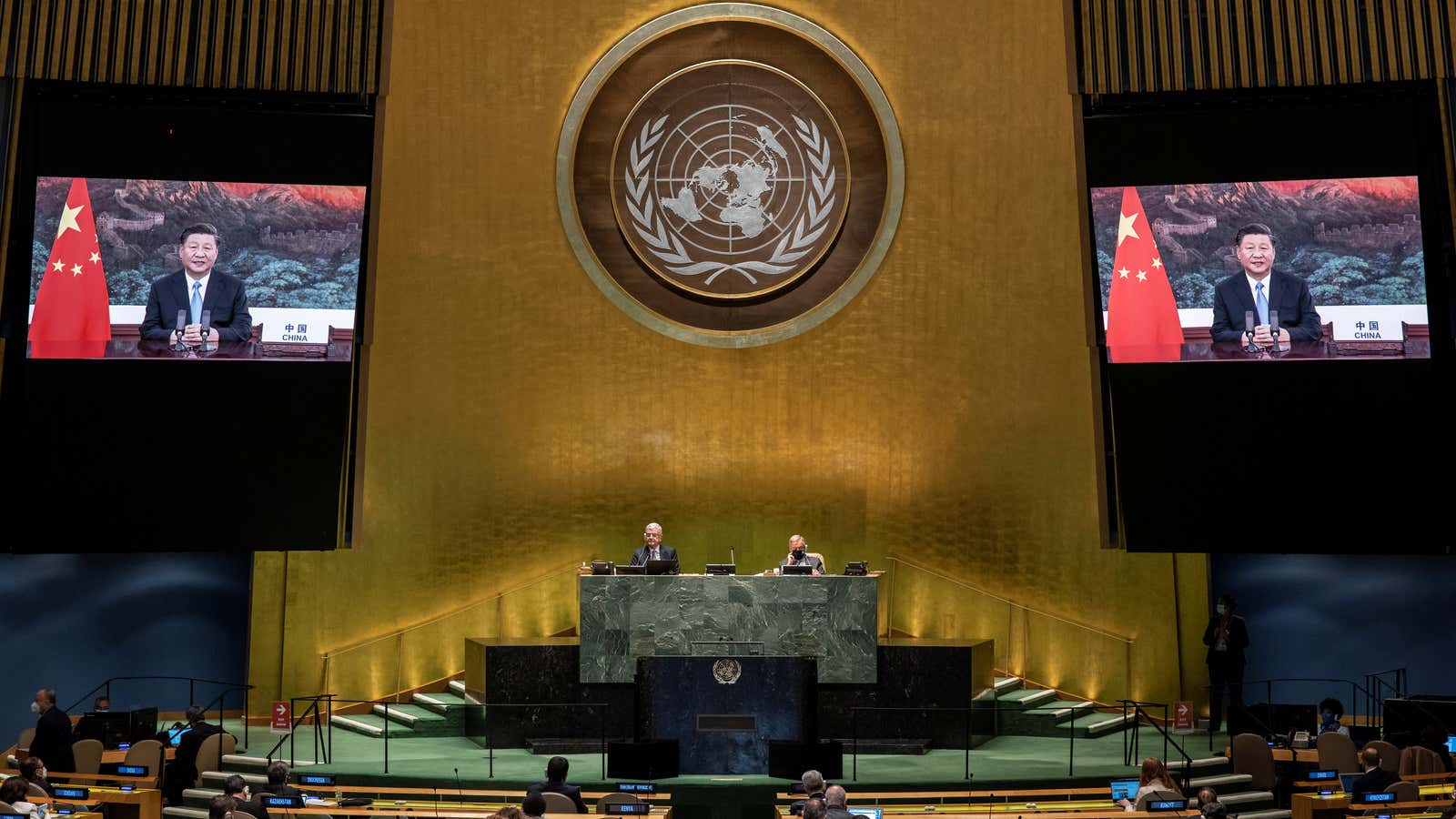To the dismay of human rights activists, China was yesterday elected to the United Nations Human Rights Council. The Chinese mission to the UN quickly dashed off a triumphant tweet, hailing the “strong support” from member states and pledging to promote and protect human rights.
Left unsaid was a slightly more uncomfortable truth: support for China at the election was actually its weakest since the council’s founding in 2006. Tallying just 139 votes, it lost the support of 41 member states from its previous election. And among the 15 countries elected to fill vacant seats in the 47-member body this year, Beijing got the fewest votes. Russia was also elected, running unopposed and winning 158 votes after failing in its 2016 bid, but Saudi Arabia failed to make the cut-off in what’s seen as a humiliating blow to the kingdom’s attempts to brush up its image.
All 193 UN countries can vote for the seats, which are distributed among five regions.
The numbers is the latest in a series of indications that Beijing’s global reputation is taking a beating as governments grow increasingly disturbed by its actions at home and abroad. Just last week, the Pew Research Center published a study showing that China is disliked globally more than ever before, and that distrust of its leader Xi Jinping is at historic highs.
Earlier this month, 39 countries signed a joint statement at the UN condemning China’s human rights record, including its repression of the Uyghurs in Xinjiang, up from 23 last year. Meanwhile, only 45 countries signed a rival statement supporting Beijing’s actions in Xinjiang, down from 54 last year.
All of this is happening amid increasing global awareness and opposition to China’s human rights violations. Its heavy-handed crackdown on Hong Kong has drawn widespread condemnation, helped in part by the sophisticated advocacy campaign waged by Hong Kong activists, which has kept the city’s protest movement on the international agenda. Meanwhile, there is a growing international consensus that China’s Uyghur Muslims face genocide. The scandal over Disney’s Mulan, which sparked an uproar when it emerged that the film’s end credits thanked a state security agency in Xinjiang, only added to the intense international scrutiny on China’s human rights record.
Even in Africa, one of Beijing’s most carefully cultivated spheres of influence, China’s standing has taken a hit after African migrants in the southern city of Guangzhou were evicted during the coronavirus outbreak.
Still, a seat at the table is still a seat, and Beijing’s election to the human rights council fits squarely into the country’s broader strategy of using multilateral institutions like the UN to shape the global order to its advantage. It’s helped in its mission by the US, which withdrew from the UN rights council in 2018 and has continued to abandon the international order under the Trump administration, leaving a vacuum for Beijing to fill. This dynamic has intensified during the pandemic with the Trump administration withdrawing funding for the World Health Organization and opting not to participate in its global vaccine initiative, which China recently announced it would join.
China has had setbacks at the UN, however, and this year’s plunge in votes supporting its membership on the rights council could signal more to come. In March, for example, Beijing’s bid to install a Chinese head at the World Intellectual Property Organization, a UN specialized agency that promotes the protection of intellectual property around the world, was thwarted when the Singaporean nominee won the election instead.
And Beijing this month withdrew a resolution calling for “people-centered approaches” to human rights—seen by critics as an attempt to redefine human rights in relation to different national contexts, rather than as underpinned by universal values—in what was seen as a major setback to its attempts to reframe the language of human rights.
